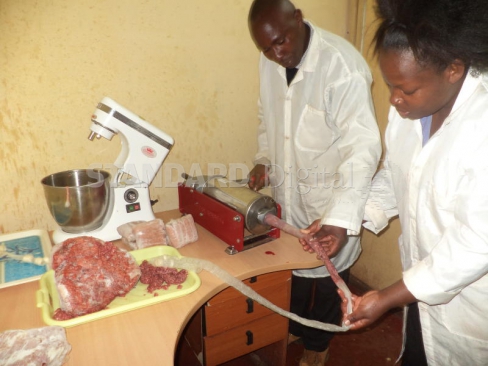
KIAMBU: Rabbit meat fetches good money, but if you want even more, try value addition. We are talking sausages, kebabs and samosas! Three savvy youth have taken rabbit business to the next level and have every reason to celebrate.
Isaac Muigai, Lillian Kanyingo and Peter Njoroge are proprietors of Pillar Group Ltd which processes rabbit meat into sausages, kebabs and samosas. When Smart Harvest visits them at their processor in Kikuyu, Kiambu County, we find Muigai cutting through a thick chunk of rabbit meat as Kanyingo holds it gently.